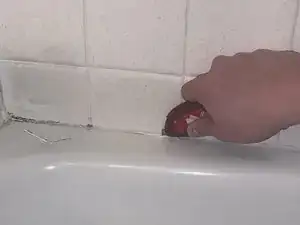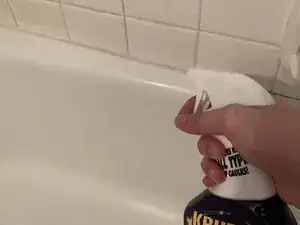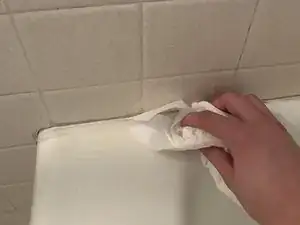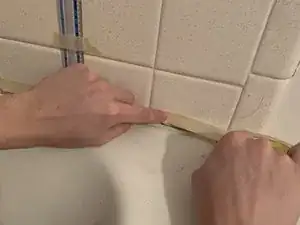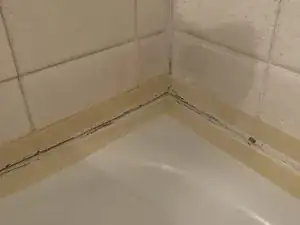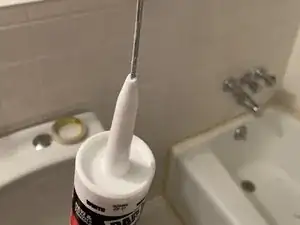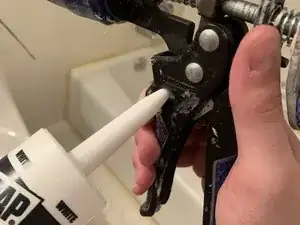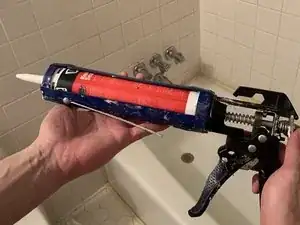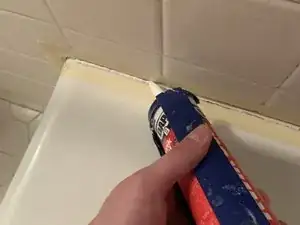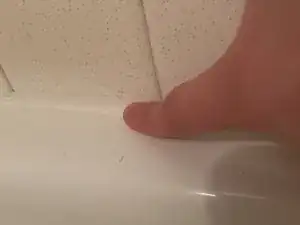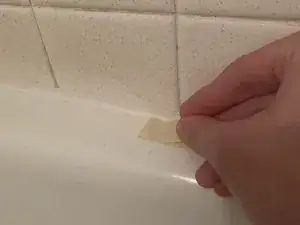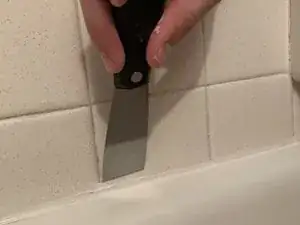Introduction
The procedure being performed is the replacement of the caulk around the bathtub. The process first starts with the removal of the caulk and cleaning of access caulk. It is supposed to dry overnight to prevent molding of the walls. Be careful with the caulk remover as it is dangerous if it gets in the eyes or mouth.
The process of loading the caulk gun is as followed:
- Puncture it by sticking the metal rod alongside the caulk gun into the head of the new caulk
- Cut the tip of the new caulk with the cutter that is inside of the caulk gun handle, and make sure to cut it at the label with the desired width you want to caulk.
- Let the pump part of the caulk gun be back as far as possible so the caulk is able to fit into the gun
- Once it’s in place just pull the trigger until there is enough pressure for the caulk to come out
Tools
-
-
Remove current caulk from bathtub using a sharp tool such as a knife or utility tool. Test it first in a small area to not scrape the bathtub.
-
-
-
Clean the surface and mold from the area with a putty knife. Excess caulk can be removed with a combination of liquid caulk removal. Remove the rest of the residue with a knife.
-
-
-
Dry the area well to prevent mold from forming and it let it dry overnight before continuing the next step.
-
-
-
Tape around the area that is going to be caulked. Place the tape 1/8 inch on either side of the seam that is going to be caulked. The tape keeps the caulk in a smooth line.
-
-
-
Trim the opening of the caulk from the caulk gun to 1/8 an inch and use it a 45-degree angle and make sure it is the same size as the area between the tape.
-
-
-
Load the caulk gun and use a steady pressure along the space between the tape as you move across it. An even pace is needed; if it’s too slow the caulk will pile up, and if it’s too fast it will break easily.
-
If you are how unhappy how the caulk turned out; don’t worry you can just do the following the steps again as there is no permanent damage done with caulking.
